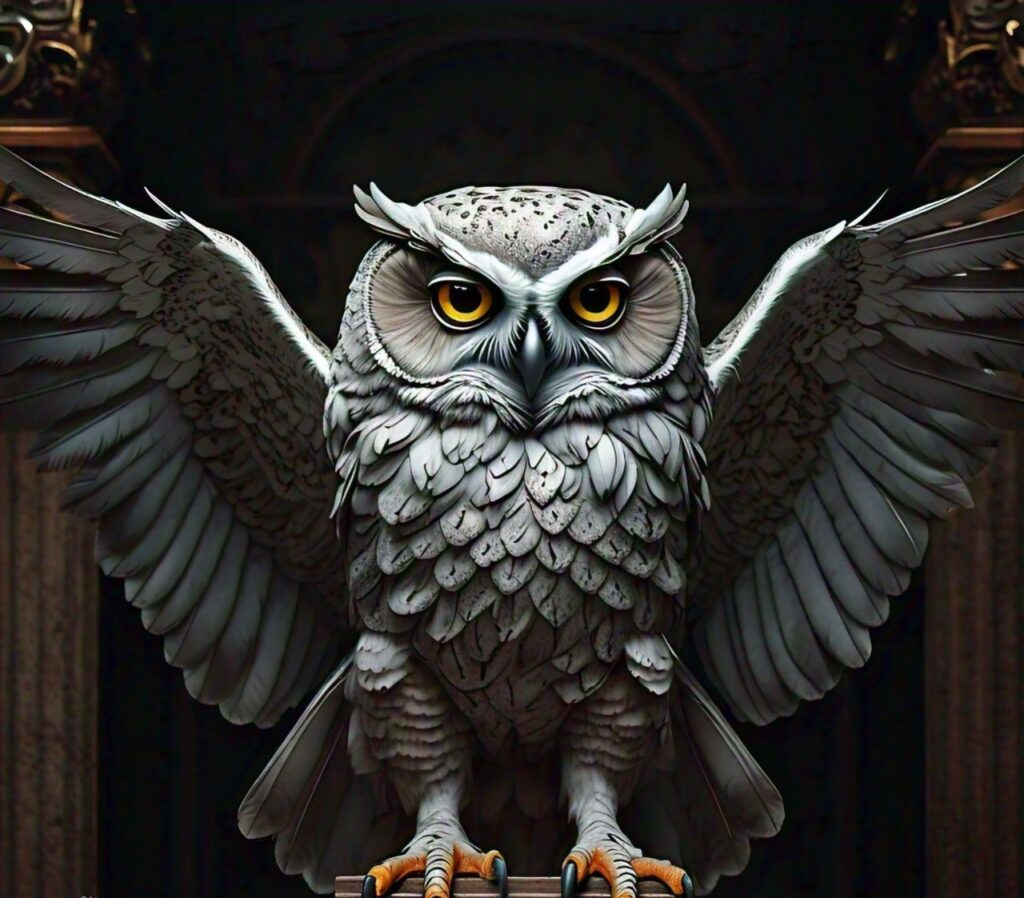“The Owl of Minerva Takes Flight,” a very wise expression, captures the profound insight that emerges at the end of significant historical or intellectual periods. This idea, which has its roots in Hegelian philosophy, implies that real understanding frequently becomes apparent only after the fact. We explore the intricate connections between philosophy and culture, asking how this metaphor might illuminate contemporary issues and age-old philosophical traditions. .
Where Minerva’s Owl Came From
The Greek goddess Athena is a counterpart to the Roman goddess of wisdom Minerva. Her emblematic animal, the owl, represents great awareness and intelligence. Renowned German philosopher Hegel once said, “The owl of Minerva spreads its wings only with the falling of the dusk,” underscoring the fact that philosophical insight is frequently retroactive and appears only after reality has finished developing.
A Review of Hegel’s Philosophy
Hegel’s philosophy is defined as unifying conflicting concepts in order to unveil ultimate truths. He understands the history as a sensible path toward liberty and self awareness is reflected in this thesis-antithesis-synthesis sequence.
Perspectives on Philosophy in Light of Cultural Shift
Interpreting philosophy via the prism of cultural revolution leads to a clearer understanding. The paradigms that we use to interpret the world around us change along with cultures. Philosophical ideas are closely related to historical and cultural settings, as the owl of Minerva reminds us.
Philosophy’s Place in Modern Society
Philosophy is crucial in the modern period for tackling complex global issues including technology advancements, moral conundrums, and sociopolitical changes. Through a philosophical analysis of these matters, we gain a deeper understanding of the forces shaping our world.
Technological Advancements and Moral Issues
The rapid advancement of technology demands careful ethical analysis. By providing a framework for analyzing the effects of artificial intelligence, privacy issues, and the digital divide, philosophical inquiry helps us better understand these morally challenging situations.
Taking Socio-Political Changes Into Account
Philosophy offers vital resources for critical analysis and discussion during periods of political polarization and social upheaval. Philosophical viewpoints may support more inclusive and knowledgeable dialogue by examining ideas like justice, equality, and power relations.
Reflections on Culture from a Philosophical Lens
Literary and artistic forms effectively illustrate the relationship between philosophy and culture. We may learn more about the human condition and the intellectual underpinnings of cultural products by exploring these links.
Philosophy and Literature: A Mutually Beneficial Partnership
A potent vehicle for philosophical investigation is literature. Authors tackle moral quandaries, existential issues, and the nature of reality via story and character development.
The Investigation of Aesthetic Philosophy via Art
Philosophical issues reflect in artistic expression. Also inspiring viewers to consider beauty, truth, and the meaning of life. The limits of vision and meaning are subjects of philosophical reflection in movements such as expressionism, minimalism, and surrealism.
In summary
The Minerva’s owl represents the never-ending search for knowledge and insight in a complicated and dynamic environment. We may learn a great deal about the factors influencing our lives and the human experience as a whole by investigating the points where philosophy and culture converge. Philosophical inquiry, discussion, and advancement are all made possible by philosophy, even in the face of the opportunities and difficulties presented by the modern world.
FAQs
What is the emblem of the “Owl of Minerva”?
The Owl of Minerva represents knowledge and intellectual understanding, which are frequently attained after the fact.
What is philosophy’s contribution to modern society?
Philosophical frameworks facilitate the understanding of intricate ethical, technical, and sociopolitical matters.
Why does literature matter in discussions about philosophy?
Literature addresses philosophical issues and presents complex viewpoints on moral and existential quandaries.
In what ways do philosophical themes appear in art?
Philosophical reflection is encouraged by art, which questions conventional notions of existence, truth, and beauty.
What role does Hegel’s dialectical technique play?
Hegel’s dialectical approach serves as an example of how to reconcile opposites in order to arrive at greater understanding and truths.
